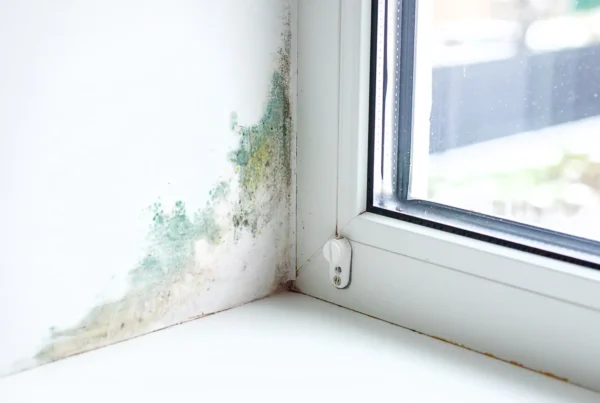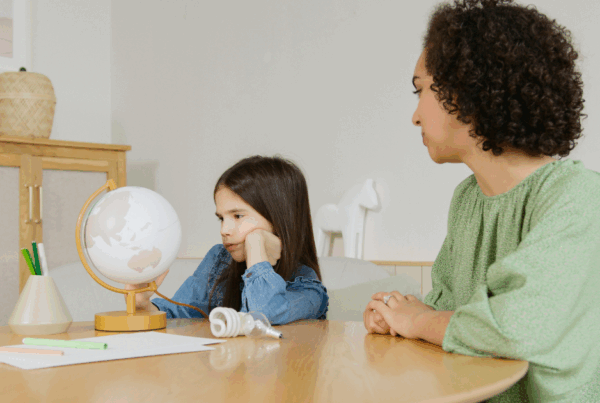Does Your Child Have Anxiety? Improving Gut Health May Help.
Anxiety is a growing problem in our culture. According to the National Alliance on Mental Illness (NAMI), anxiety disorder affects 40 million American adults — that’s almost 20% of the population.
But it’s not just adults. According to NAMI, 7% of children between the ages of 3 and 17 have an anxiety disorder diagnosis as well.
Anxiety is a mental health issue. And when most people think of mental health, they think of the brain. And while anxiety is closely tied to what’s happening in the brain, there’s more to the story.
Research now shows that anxiety can also be a dysbiosis symptom, meaning an imbalance in the gut microbiome may contribute to or even trigger symptoms of anxiety. This gut-brain connection highlights how deeply our digestive health and mental health are intertwined.
The Gut-Brain Connection
Your brain contains 100 million neurons. Neurons are cells that serve as messengers. They transfer information using chemical and electrical impulses. Neurons are involved in every thought and feeling you experience.
But the brain isn’t the only place you’ll find them. Your gut contains neurons as well. These neurons line the gastrointestinal system. In fact, your gut holds 500 million neurons — 5 times the amount in your brain. So much so that the gut has been labeled the “second brain”.
This second brain is also known as the enteric nervous system, or ENS and is responsible for many of your digestive processes — including the release of digestive enzymes, swallowing, and identifying nutrients and waste products.
In addition to overseeing digestion, the ENS helps to regulate the production of our body’s neurotransmitters. Did you know that 90% of the body’s neurotransmitters are made in the gut? This includes our feelgood neurotransmitters like serotonin, dopamine and GABA.
The ENS is connected to the central nervous system (CNS) through the vagus nerve. As the largest nerve in your body, the vagus nerve runs from the brain all the way down to the digestive tract. The vagus nerve is the main highway between the CNS and the ENS. And it’s a two-way street.
This means information goes both directions. What happens in your brain affects your gut, just as what happens in your gut affects your brain. This is a bidirectional communication pathway is known as the gut-brain-axis.
It’s no accident that we feel so many of our emotions in our gut. If you’ve felt a ‘knot’ in your stomach when you’re worried or have digestive distress in the midst of intense emotion, you’ve experienced this connection.
While less obvious, the reverse is also true: gut dysfunction directly impacts how we think and how we feel. Anxiety, stress, and depression can all be linked to what’s happening in your gut.It’s not just the neurons and neurotransmitters that matter here. Your gut is home to your microbiome. And the microbiome is an integral part of the gut-brain connection.
What is the microbiome?
The microbiome is composed of all the bacteria, viruses, and fungi in and on our bodies. Your body is made up of 30 trillion cells although the microbiome contains even more — an estimated 39 trillion. And it contains thousands of different species. Because these organisms are so small, your microbiome only takes up 1 – 3 percent of your body mass.
What does the microbiome do?
The microbiome is a critical component to both physical and mental health — especially the organisms that line your digestive tract (also known as your gut bacteria).
Your microbiome:
✔ Stimulates the immune system to prevent illness
✔ Produces mood-stimulating chemicals like serotonin and GABA
✔ Supports digestion
✔ Breaks down toxins
✔ Synthesizes the B vitamins, vitamin K, and some amino acids
✔ Controls fat storage
✔ Plays a role in the absorption of nutrients
✔ Replaces the lining of the gut
✔ Affects mood by releasing metabolites, toxins, and neurohormones
In fact, the microbiome is involved in so many of your body’s processes and systems that it is considered a supporting organ.
But not everything in your microbiome is helpful. Even in a healthy microbiome, you’ll find pathogenic (disease-causing) agents. When the microbiome is balanced and healthy, however, the good bacteria is able to keep these unwanted invaders under control.
Problems develop when that balance is disrupted.
What happens when things go wrong in the microbiome?
Your microbiome gets its start the day you’re born. As a baby passes through the vaginal canal, they are exposed to the mother’s microbiome which forms the base for their microbiome. After birth, the microbiome continues to develop through the foods we eat and the bacteria we come into contact with.
A healthy microbiome is both diverse and prolific. But our microbiomes are delicate and they can be damaged.
The microbiome is damaged by:
👎 Infectious illness
👎 Certain diets — including those high in sugar and processed foods
👎 Antibiotic use — which destroys the good bacteria along with the bad
👎 Antibacterial and disinfectant cleaning products
👎 Smoking — a 16-year study found smoking increases harmful microbes and decreases beneficial ones.
Dysbiosis Symptoms
When your microbiome is disrupted, you develop an imbalance called dysbiosis. In addition to causing increased inflammation, intestinal permeability, and downstream nutrient deficiencies, disruptions in gut microbiome can also lead to physical and mental health issues.
Intestinal permeability is one of the key factors that contributes to the development of autoimmune diseases like PANS/PANDAS. You can read more about how intestinal permeability contributes to autoimmune disease here.
Physical Dysbiosis Symptoms include:
👉 Chronic fatigue
👉 Digestive problems — including acid reflux, gas, and bloating
👉 Food intolerances
👉 Skin problems — including rashes, psoriasis, and acne
👉 Aching joints
Mental health conditions associated with dysbiosis include:
👉 ADHD and concentration issues
👉 Anxiety
👉 Depression
👉 Schizophrenia
People with dysbiosis are more likely to have conditions like allergies, Inflammatory bowel disease (IBS), diabetes, cancer, cardiovascular problems, autism, and central nervous system disorders. Gut imbalance have also been linked to autoimmune diseases like ulcerative colitis, rheumatoid arthritis, and multiple sclerosis.
How I Treat Dysbiosis Symptoms
Intestinal permeability is one of the key causal factors in the development of autoimmune disorders like PANS/PANDAS, autism, and ADHD as well as mood disorders like pediatric anxiety and depression. This is because dysbiosis negatively impacts neurotransmitter production, and leads to leaky gut, which in turn leads to leaky brain syndrome.
As such, in my practice, healing the gut is always step one when it comes to healing the brain and reversing symptoms of neuroinflammation. Understanding that your child’s anxiety or focus issues might be a direct result of a gut imbalance can make a tremendous difference in their healing. If your child is suffering from a condition like autism or PANS/PANDAS, eliminating dysbiosis is always a game-changer.
If you are ready to take the next step and learn how to heal your child’s brain while healing their gut, I would love to have you as a part of my Foundations in Healing Program.
The Foundations Program is a highly mentored, 8-week learning intensive for parents of children with inflammatory brain conditions like PANS/PANDAS, autism, ADHD, anxiety/depression, and Lyme.
In addition to biweekly live calls with me and my team where we dig in together and answer all of your questions, Foundations participants get 24 month’s access to all learning modules, symptoms assessment tools, and guides. Participants also gain access to the NES/Energy4Life scanning app along with curated bioenergetic detoxification protocols based on your child’s monthly scan.
Your child’s body is hard wired to heal, it just needs the tools. In the Foundations Program, we provide those tools.
For more information on the Foundations Program, click here
To hear more about what former participants are saying, click here.
Resources
https://www.ncbi.nlm.nih.gov/pmc/articles/PMC7213601/
https://www.everydayhealth.com/wellness/united-states-of-stress/how-stress-affects-digestion/
https://www.health.harvard.edu/diseases-and-conditions/the-gut-brain-connection
https://www.healthline.com/nutrition/gut-brain-connection
https://www.sciencefocus.com/the-human-body/human-microbiome/
https://www.webmd.com/digestive-disorders/what-is-dysbiosis







